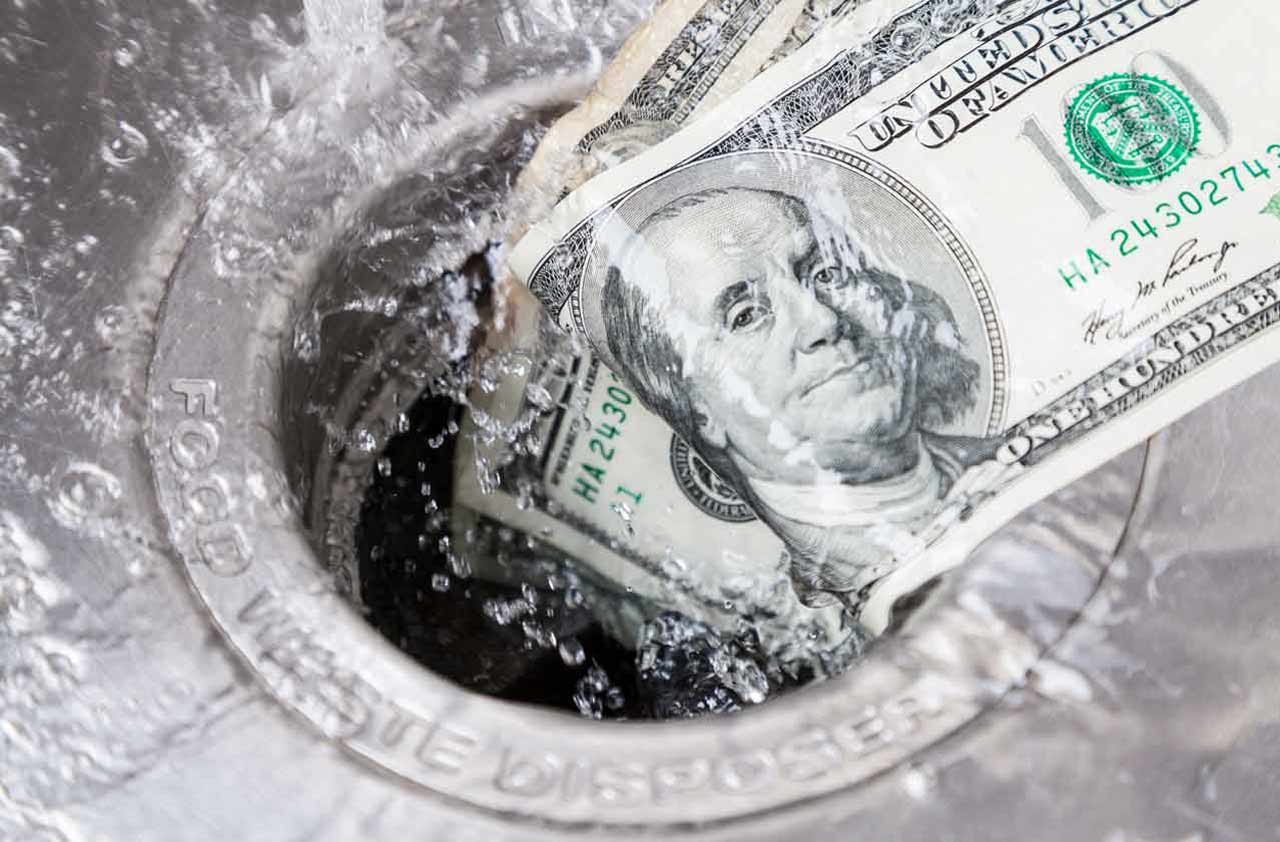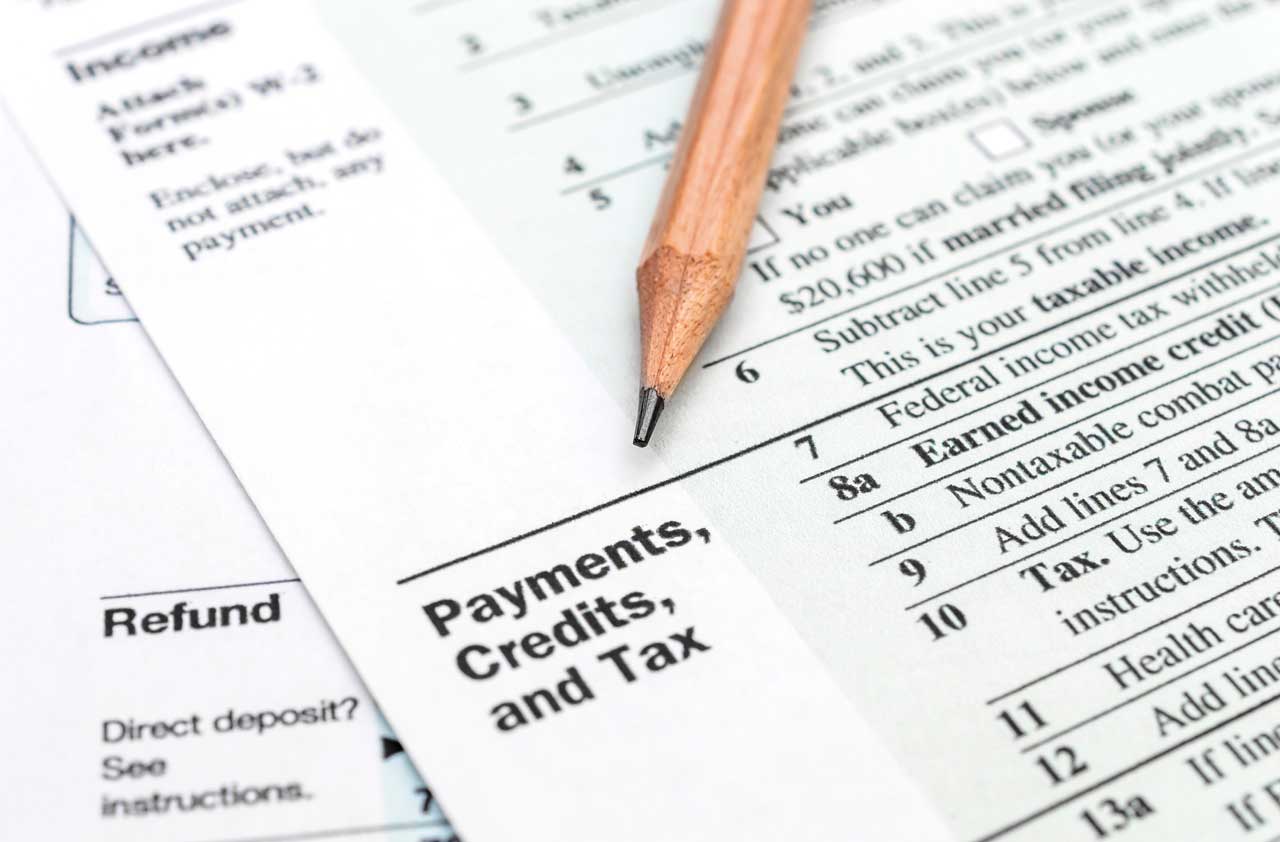Spring Has Sprung: 9 Tips to Bring New Life to Your Finances
It’s prime time to spruce up your home, yard and most important, your finances. Get started today with these timely tips.

Profit and prosper with the best of Kiplinger's advice on investing, taxes, retirement, personal finance and much more. Delivered daily. Enter your email in the box and click Sign Me Up.
You are now subscribed
Your newsletter sign-up was successful
Want to add more newsletters?

Delivered daily
Kiplinger Today
Profit and prosper with the best of Kiplinger's advice on investing, taxes, retirement, personal finance and much more delivered daily. Smart money moves start here.

Sent five days a week
Kiplinger A Step Ahead
Get practical help to make better financial decisions in your everyday life, from spending to savings on top deals.

Delivered daily
Kiplinger Closing Bell
Get today's biggest financial and investing headlines delivered to your inbox every day the U.S. stock market is open.

Sent twice a week
Kiplinger Adviser Intel
Financial pros across the country share best practices and fresh tactics to preserve and grow your wealth.

Delivered weekly
Kiplinger Tax Tips
Trim your federal and state tax bills with practical tax-planning and tax-cutting strategies.

Sent twice a week
Kiplinger Retirement Tips
Your twice-a-week guide to planning and enjoying a financially secure and richly rewarding retirement

Sent bimonthly.
Kiplinger Adviser Angle
Insights for advisers, wealth managers and other financial professionals.

Sent twice a week
Kiplinger Investing Weekly
Your twice-a-week roundup of promising stocks, funds, companies and industries you should consider, ones you should avoid, and why.

Sent weekly for six weeks
Kiplinger Invest for Retirement
Your step-by-step six-part series on how to invest for retirement, from devising a successful strategy to exactly which investments to choose.
When spring is in the air, it’s time to put away those winter sweaters and pull out your summery shorts. It’s also a great time to clean your financial house, casting aside old habits and starting new ones.
So, as flowers begin to bloom and birds return to their nests, give yourself a fresh financial start, too. Here are nine ways to clear the cobwebs from your wallet and get your financial plan neat and tidy for 2020.
Written by Salene Hitchcock-Gear, president of Prudential Individual Life Insurance, which includes Prudential Advisors.

1. Review your spending, create a budget and set up automated savings
If you don’t have emergency savings, you’re not alone: Nearly 60% of Americans don’t have enough money to cover a $500 emergency, according to a Bankrate survey. Increasingly, workplaces are helping people to contribute to an emergency fund alongside retirement plans like 401(k) accounts, and if that option is unavailable, individuals can use direct deposit to set aside emergency funds.
Creating a budget and setting aside money for savings is one of the best ways to reach financial goals.

2. Throw away your debt
Debt is like that clutter in the closet that’s taking up space you need for something else, including reaching goals like buying a new home. And just as you’d go through your closet, start out by assessing the debt you already have. While you may not be able to pay everything off, with some discipline you can make real changes.
Begin with consumer credit cards, tackling those with highest interest rates first as part of an overall repayment strategy that also addresses student debt and mortgages. You may even be able to pay off some debt with money raised from a spring yard sale.

3. Perform your own self-evaluation to keep your career growing
Take stock of where you are at work, including your salary. Check the salary range for your job, know what you’re worth and create a negotiation plan. If 2020 is the year you need to take a career break to take care of your family, think about how to maintain your skills through volunteering or continued learning while you take time off from paid work.

4. Spruce up retirement plan contributions
If you began the year with a raise, a good bonus or even got a great tax return, you likely have already begun planning a summer vacation, started looking at new cars or making other plans. Consider setting some of that aside for the future by adding to your workplace account or in an individual retirement account.

5. Review your tax withholding
If you got a big tax refund in 2019, it likely feels like a bonus. But it really means you were paying more than you should have last year, giving Uncle Sam money that you could have put to work for your own needs. Set up withholding so that you get the most out of your paycheck through the year without owning any money at tax time in 2021.

6. Dust off your estate plans
Doublecheck your list of beneficiaries to see if anything has changed in the last year. A change in any relationship, like getting married, will likely prompt an immediate change. Also consider whether any life changes would impact elements of an estate plan, including any power of attorney documents.

7. Review insurance needs
Spring is a great time to consider whether any life changes, like having a newborn or getting married, create a need for financial protection. If someone depends on your income for any number of reasons, it’s worth considering whether life insurance will work for you. It’s also a great time to review homeowners or rental insurance policies as well.

8. Put a new shine on your financial plan (with an adviser)
Whether it’s an accountant for tax planning or a financial adviser for investment and insurance advice, it’s important to find a professional who can help you review your accounts and provide recommendations on how to best reach your financial goals. In current volatile markets, for example, it’s important to know what’s happened in your portfolio and to use any investment losses to reduce capital gains taxes.

9. Sow the seeds of your financial future
Begin to think about financial goals for the rest of the year and beyond — what seeds can you plant today to reap the rewards you seek? Focus on what you want for yourself and your family, with a near-term budget and some long-term ideas, including saving for retirement. Do you want to go on a big family vacation this summer? In retirement, do you want to live in an urban area and volunteer? Do you want to climb mountains?
As you shake the dust off your financial plan and imagine your future, cleaning house can help you understand how much it will cost and start thinking about ways to keep you finances in order throughout the year ahead. The sky’s your limit.
Profit and prosper with the best of Kiplinger's advice on investing, taxes, retirement, personal finance and much more. Delivered daily. Enter your email in the box and click Sign Me Up.

Salene Hitchcock-Gear is president of Prudential Individual Life Insurance, a business unit of Prudential that offers competitive solutions to meet the needs of consumers through the manufacturing and distribution of a diverse portfolio of life insurance products. An insurance industry veteran with more than 30 years of experience, Hitchcock-Gear joined Prudential in 2017 as chief operating officer of Prudential Advisors, the Company’s national sales organization with more than 3,000 financial professionals, advisors and fee-based financial planners who offer clients a broad range of financial solutions. She became president of the Individual Life Insurance business in 2018.
-
 Quiz: Do You Know How to Avoid the "Medigap Trap?"
Quiz: Do You Know How to Avoid the "Medigap Trap?"Quiz Test your basic knowledge of the "Medigap Trap" in our quick quiz.
-
 5 Top Tax-Efficient Mutual Funds for Smarter Investing
5 Top Tax-Efficient Mutual Funds for Smarter InvestingMutual funds are many things, but "tax-friendly" usually isn't one of them. These are the exceptions.
-
 AI Sparks Existential Crisis for Software Stocks
AI Sparks Existential Crisis for Software StocksThe Kiplinger Letter Fears that SaaS subscription software could be rendered obsolete by artificial intelligence make investors jittery.
-
 States That Tax Social Security Benefits in 2026
States That Tax Social Security Benefits in 2026Retirement Tax Not all retirees who live in states that tax Social Security benefits have to pay state income taxes. Will your benefits be taxed?
-
 What to Do With Your Tax Refund: 6 Ways to Bring Growth
What to Do With Your Tax Refund: 6 Ways to Bring GrowthUse your 2024 tax refund to boost short-term or long-term financial goals by putting it in one of these six places.
-
 What Does Medicare Not Cover? Eight Things You Should Know
What Does Medicare Not Cover? Eight Things You Should KnowMedicare Part A and Part B leave gaps in your healthcare coverage. But Medicare Advantage has problems, too.
-
 12 Great Places to Retire in the Midwest
12 Great Places to Retire in the MidwestPlaces to live Here are our retirement picks in the 12 midwestern states.
-
 15 Cheapest Small Towns to Live In
15 Cheapest Small Towns to Live InThe cheapest small towns might not be for everyone, but their charms can make them the best places to live for plenty of folks.
-
 15 Reasons You'll Regret an RV in Retirement
15 Reasons You'll Regret an RV in RetirementMaking Your Money Last Here's why you might regret an RV in retirement. RV-savvy retirees talk about the downsides of spending retirement in a motorhome, travel trailer, fifth wheel, or other recreational vehicle.
-
 The 24 Cheapest Places To Retire in the US
The 24 Cheapest Places To Retire in the USWhen you're trying to balance a fixed income with an enjoyable retirement, the cost of living is a crucial factor to consider. Is your city the best?
-
 The Six Best Places to Retire in New England
The Six Best Places to Retire in New Englandplaces to live Thinking about a move to New England for retirement? Here are the best places to land for quality of life, affordability and other criteria.

